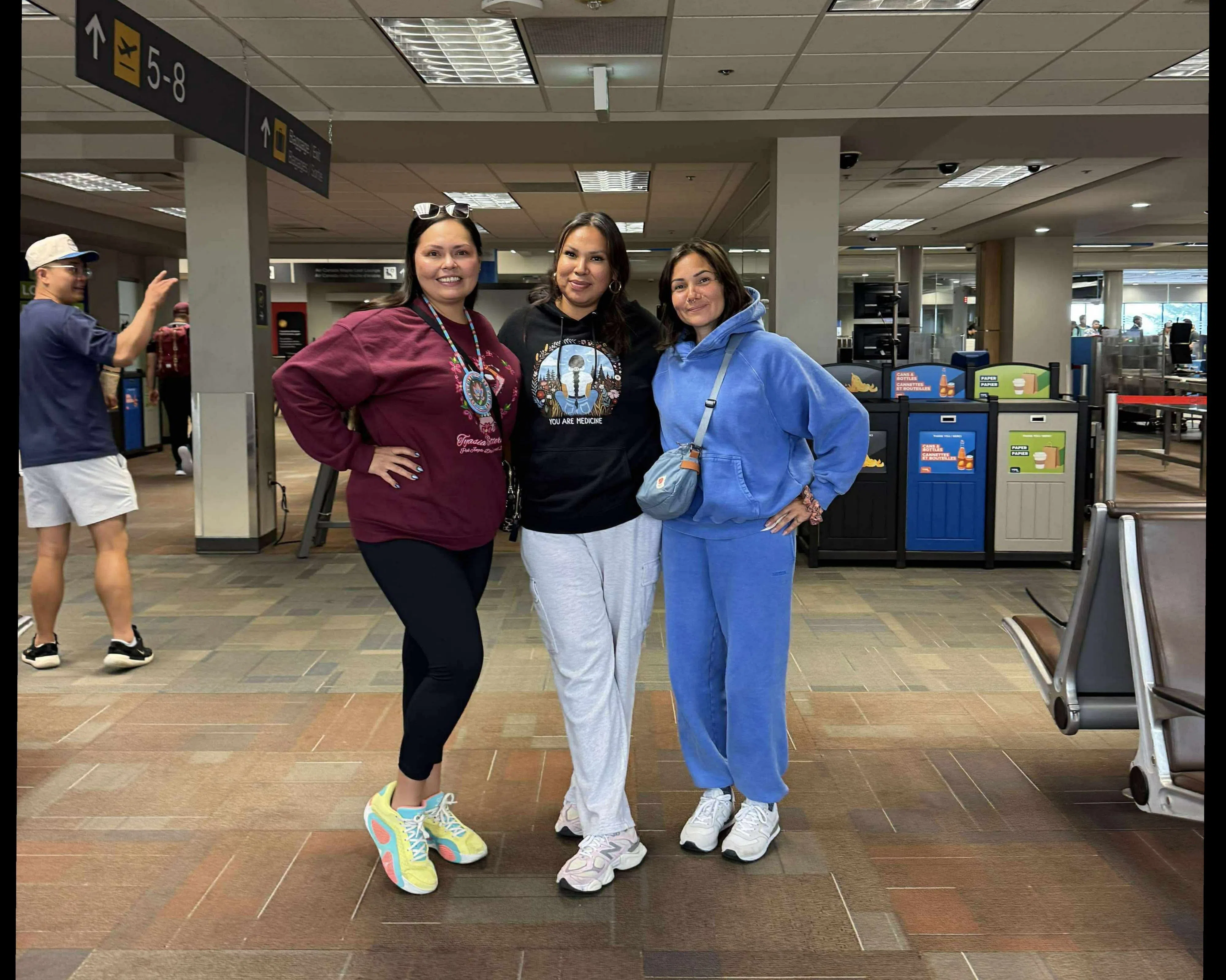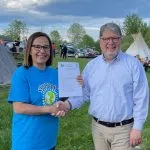
Students From FNUniv Speak on Language Erosion Abroad
A small group of students and educators from the First Nations University of Canada (FNUniv) are currently in Ireland to deliver a powerful message.
“I really want to make the rest of the world aware of our people [and] our languages,” said Amelia Friday, a member of Piapot First Nation and an Indigenous Studies major at FNUniv. “We’re here, they tried to erase us, but they couldn’t.”
She and three others are in Galway, a coastal city in Ireland, to both attend and present at the ASLE-UKI Conference, hosted by the University of Galway.
“We’re doing this trip to let people know we’re doing our best to keep our languages alive,” said Friday.
The conference hosts academics and creatives who are interested in the relationships between literatures, environments, and cultures.
“I thought of this as a good opportunity, because I’m so involved in my community at Piapot, but also because I’m an urban Indian,” said Brayden Benjoe, also from Piapot and an English major at FNUniv. “I want to know more and study my language.”
The theme of this year’s conference is erosion – a slow, gradual type of degradation. Presenters at the conference, including those from FNUniv, will focus on how literature and culture can perceive and address erosion.
The group is doing a presentation on Cree syllabics – a unique writing system used for the Cree language, where each symbol represents a consonant-vowel combination, rather than individual sounds.
Friday is also sharing traditional beadwork, including a star chart of the Cree syllabics, and a beaded purse she brings with her when she travels to powwows.
“When I travel, I want to create a conversation piece, a way of teaching others about our language,” said Friday. “It’s who I am, so I want to showcase that when I travel.”
Benjoe is speaking on the uses and sounds of Cree syllabics, as well as how to incorporate Cree syllabics into everyday writing, as well as the historical importance in storytelling.
“Language is such a big part of who we are as Indigenous people, but in many ways it’s eroding,” said Benjoe. “From a colonial approach, the Residential school system really took a toll on us as Indigenous people. So reclaiming our land, our ceremonies, our language, is important in a world that is so Westernized.”
Canada and Ireland may seem like two separate worlds but they are more similar than one may think.
Ireland experienced a prolonged period of colonization by England spanning several centuries until the establishment of the Irish Free State in 1922.
Tammy Ratt, program coordinator and lecturer of Indigenous Languages at FNUniv. said that common history is significant.
“We’re going to talk about how we can learn together, how we can heal together and hopefully help them understand us and the land at a deeper level,” she said.
Ratt learned about the conference from a colleague, then brought the idea to her students. Ultimately she wanted to give her students an opportunity to present on an international stage. Although many students were interested, Benjoe and Friday were the two who were committed to it from the start. Although, FNUniv did provide some funding for the trip, traveling to another country is still costly and the students did fundraise for some of their expenses.
In order to be accepted into the conference, Ratt wrote a proposal on the erosion of the language, and the resistance of this destructive process. The group was awarded a 20-minute panel to present at the conference.
“I talked about how learning syllabics strengthens our resistance to colonialism as both a community and individually,” said Ratt. “We use our language to heal and preserve and grow, while resisting the ongoing forces of colonialism.”
While Ratt hopes the group from Saskatchewan makes an impact in Ireland, she hopes a significant impact is also brought back home.
“I want (Benjoe and Friday) to experience something amazing,” said Ratt. “My hope is that they keep on with language reclamation. I want them to be the next group of people researching.”

